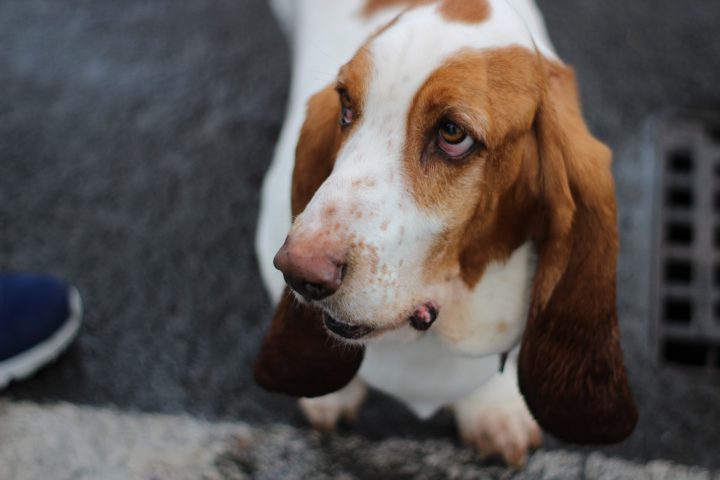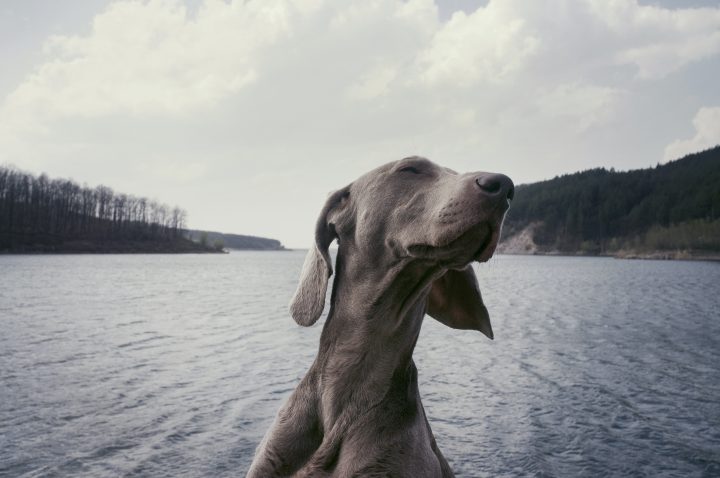It is no secret that male or female dog smells can be noticeably worse than some other pets. Dogs love to go outside, go swimming, roll in mud, or play with other dogs. Overall, they love to have fun! What they don’t love, unlike cats, is keeping themselves clean.
The joyful life of a dog does mean that often dogs can begin to smell. They do need their owner’s help to keep themselves clean. Whilst they will clean themselves to a certain extent, they much prefer to be grubby than clean. So to prevent those doggy smells you need to wash them regularly.
If you begin to notice a fishy smell from a dog then this could be down to a number of reasons. In this article I am not only going to tell you why your pup smells like fish, but I will give you some tips to fix the smell and to prevent it from ever coming back again!

Table of Contents
- Reasons My Dog Smells Like Fish
- Signs of Anal Sac Disease
- Dogs Vulnerable to Anal Sac Disease
- How to Treat Anal Sac Disease
- Tips to Prevent Anal Sac Disease
- Why Does My Dog Smell Like Fish – Final Wrap Up
- FAQs
Reasons My Dog Smells Like Fish
Why does my dog smell like fish? What is the fishy smell coming from my pup?
Recognising a fishy odor on your dog is not uncommon at all. In fact, it is actually something most dog owners experience at some point. Try not to worry too much if you do notice a bad smell!
Impactions
Impactions are one of the most common reasons for the fishy scent. This happens when the fluid inside the anal glands is not completely emptied when it should be, during the process of pooping. Every time your dog defecates, they release this fluid. But sometimes this fluid may not empty entirely.
Over time, the fluid begins to dry up and this causes impaction. The sacs will feel a lot harder to touch and your dog may demonstrate some pain if you try to touch them.
This can happen for a number of reasons. If your dog is experiencing diarrhea or soft stool, there may not be enough pressure for the glands to release the fluid. Additionally, if your dog has abnormalities in their glands then they will not release fluid correctly.
A more common cause for this is obesity in your dog. If your dog continues to have anal gland issues and your dog is overweight, you should look at an alternative diet to not only help your dog’s anal sac problems, but to help their health overall.
If impactions are not treated then they can begin abscessed, which then leads to a much more serious issue.

Infection and Abscesses
These impactions, as mentioned above, can turn into abscesses if not treated. They can also become infected which is usually the process in between an anal sac impaction turning into an abscess.
Sign of infections and abscesses will be a discolored anal sac that has become swollen. If left untreated, the abscesses can rupture, causing your dog a lot more pain and can become even more difficult and complicated to treat.
Anal Sacs
Believe it or not, this has absolutely nothing to do with what your dog has eaten or what your dog has rolled in. The main reason as to why your dog will be giving off a fishy odor is due to their anal glands, sometimes known as anal sacs.
What are anal sacs?
Anal sacs are the small sweat glands that sit at each side of your dog’s anus. They release a secretion every time your dog goes to the toilet and work as a scent marker. However, whilst they release this secretion, they also release the unpleasant, fishy odor.
This is the main reason dogs are usually very interested in each other’s poop. It gives off chemical information about whichever dog has left the feces, also demonstrating why dogs often greet each other by going straight for a sniff of the bum!
Whilst these anal sacs usually only release this odor during your dog taking a poop, there are a number of reasons as to why the smell may be more present than it usually is or than it should be.
Anal Sac Disease
Despite the serious terminology, anal sac disease is a blanket term used for almost any issue your dog may have with their anal glands. Anal sac problems are more common amongst little dogs who are overweight.
Anal sac disease covers a number of issues, all of which will release this smelly, fishy odor.
Anal Sac Tumors
Whilst these are very uncommon, if your dog does encounter them then they can be very serious.
Anal sac tumors limit your dogs ability to use his anal glands efficiently. These will then grow and can become cancerous and then metastasis to further parts of the body.
Whilst this is a worst case scenario, it is not something that should be ruled out and highlights the importance of tackling any signs of anal sac disease as early as possible.
Anal sac tumors will be identified by a biopsy and ultrasound and your dog is then likely to have to undergo surgery to remove the tumor, and on occasion the glands will also have to be removed.

Signs of Anal Sac Disease
To avoid any of the above happening, it is useful to know how to identify any potential issues with your dog’s anal sacs. Whilst a fishy odor is one of the first signs, there are a number of other symptoms to look out for:
- Dragging their bum along the floor
- Biting or licking beneath their tail
- Difficulty defecating
- Vocalization while defecating
- A hard lump near the rectum
- Signs of blood of puss in their stool
If you notice any of these, including a fishy odor as well, it is important to book in to see the vet as soon as you can. Tackling the issue early on can prevent it from developing into anything too serious, and can also release your dog from a lot of potential pain.
Dogs Vulnerable to Anal Sac Disease
As mentioned, some dogs are particularly partial to developing issues with their anal glands. Your dog is more likely to be prone to anal sac disease if it fall under any of the following:
- Small dog breeds
- Obese dogs
- Dogs with food or environmental allergies
- Hypothyroidism
- Skin mites
- Bacterial or yeast infections
If your dog does fall under any of the above categories, it is useful to keep a particular eye on your pet. However, anal sac disease is not only limited to the above and so it is something all dog owners should stay aware of.
How to Treat Anal Sac Disease
So, if you have realised your dog is smelling fishy and has anal sac disease, what do you do next? In most cases, it is best to call the vet and have it professionally diagnosed and resolved.
This will usually consist of the vet manually emptying your dog’s anal glands. Some owners become so familiar with the process that they learn how to do this themselves or the vet shows them how they can before this drainage if it is only a small problem.
It is also likely that the vet will recommend you to put your dog on a high fiber diet to encourage natural expression.
In some instances, the problem may have gone beyond this, but it is best to see a vet and let them decide what the best course of action is to take. This may be a small treatment to empty the sacs, but it could go as far as your dog needing surgery to have the sac removed entirely. This is common if it is a recurring issue.
Tips to Prevent Anal Sac Disease
There are a number of things you can do to try and prevent anal sac disease developing in your dog. Most of them are simple and easy steps:
- Feed your dog an appropriate diet with enough fiber
- Exercise your dog regularly
- Encourage your dog to drink lots of fresh water
- Regularly examine your dog’s stool for any blood or puss
- Examine your dog’s anus early on if you notice any fishy smell
Why Does My Dog Smell Like Fish – Final Wrap Up
Whilst dogs can get quite smelly, recognising a fishy smell is something that should not be ignored. A fishy smell from your dog is a great indication that something is wrong with their anal glands.
Identifying this smell early on usually makes it a lot easier to diagnose and treat any anal sac issues. If left untreated, this can develop into something more serious.
Regularly inspect your dog and its stool. Keep your dog on a high fiber diet and encourage lots of water.
If you do recognise a bad smell, get it looked at as soon as possible and hopefully your furry friend will be back to good and healthy and smelling fresh before you know it!
Are your dog’s ears smelling bad? Read more on our blog post about it!
FAQs
A good bath and grooming (including ear cleaning and tooth brushing) should take care of unpleasant dog smells. That said, it’s important to determine the underlying cause before attempting to address the odor. The fishy smell could be due to a variety of factors, including skin issues, ear infections, dietary problems, or even anal gland issues.
While some mild odors are normal for dogs, a strong fishy smell is not a typical scent for a healthy dog. If your dog has a persistent fishy smell or if the odor is accompanied by any other concerning symptoms such as itching, discomfort, discharge, or behavior changes, it’s recommended to consult a veterinarian.





